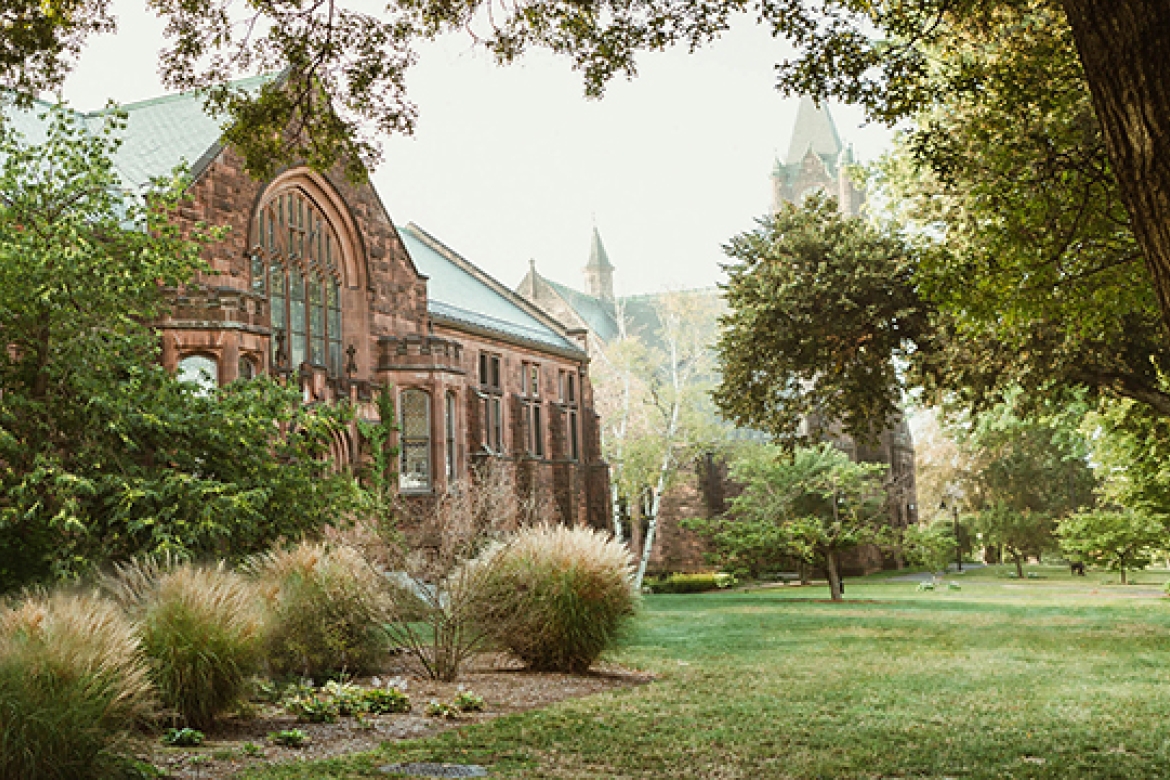Mount Holyoke seeks carbon neutrality by 2037

The Board of Trustees announces that Mount Holyoke College has set the goal of being carbon neutral by the College’s bicentennial, 2037.
By Sasha Nyary
Scientific evidence shows unambiguously that the Earth is warming, primarily because of human activity and especially through the burning of non-renewable fossil fuels.
Warming temperatures, rising sea levels and extreme weather demands both serious study and decisive action to protect the Earth and its inhabitants.
In recognition of the fact that the responsibility to work toward a greener and more equitable world is shared by all concerned individuals and institutions, the Board of Trustees at Mount Holyoke College has announced the goal of reaching carbon neutrality on campus by 2037, the institution’s bicentennial.
This commitment is a crucial step in addressing the recommendations of the College’s Sustainability Task Force, said Sonya Stephens, acting president. To achieve carbon neutrality, the College will implement a strategy of investing in energy efficiency and conservation, retrofitting historic buildings and transitioning to carbon-neutral heating and electricity sources, with a progress assessment every five years.
“This goal will direct future decision-making and institutional actions, as well as providing a framework to evaluate our progress,” Stephens said. “Now more than ever, it is important that the College take this position to manage its carbon emissions efficiently and to identify every opportunity to reduce its carbon footprint. We are committed to reaching this carbon neutrality, and to identifying new technologies in our search for clean energy systems that move us toward it.”
This decision to pursue carbon neutrality came after nearly a year of analysis and research by the Sustainability Task Force, which was convened in January 2017 with the charge of developing a plan to increase campus sustainability in accordance with the Plan for Mount Holyoke 2021. The task force was led by Catherine Corson, Leslie and Sarah Miller Director of the Miller Worley Center for the Environment, and Nancy Apple, associate director for sustainability of the center.
“This step represents our commitment to join people and institutions all over the world who recognize the seriousness of climate change and our collective responsibility to work toward a greener and more equitable world,” said Corson, who is also the Miller Worley Associate Professor of Environmental Studies.
In voting to commit to carbon neutrality, the Board furthers the 2017 pledge made by Stephens and thousands of others — college and university presidents, mayors, governors, CEOs and more — who signed the “We Are Still In” declaration. The statement supports the Paris Agreement’s global commitment to climate action despite the U.S. government’s decision to withdraw and urges elected officials to put a price on carbon in order to spur reductions in greenhouse gas emissions.
This is a new step in the College’s long-standing commitment to sustainability, which is manifest in its academic programs, student opportunities and operational programs around waste reduction, energy efficiency and sustainable food, Apple noted.
“This goal takes those commitments to the next level, recognizing the importance of progressive climate action,” said Apple, who is also director of environmental health and safety for the College.
Building on the work of the task force, the Miller Worley Center has established a sustainability steering committee that will implement the new initiatives needed to achieve carbon neutrality.
The new committee will work closely with all divisions across campus, including student organizations such as the Climate Justice Coalition, Zero Waste, Eco-Reps and the Food Justice Society.
“These groups have been significant contributors to raising awareness about the importance of tackling the critical environmental issues of our time,” Corson noted.
The College has already made progress toward this goal. The Green Revolving Fund, established in 2015, reinvests funds from energy conservation, renewable energy and other projects that reduce resource use and generate savings. Investments already made will reduce the College’s annual greenhouse gas emissions by the equivalent of more than 900 metric tons of carbon dioxide.
The designs of new capital projects, such as the Dining Commons and the plan to create the Makerspace in Prospect Hall, include significant energy-efficiency strategies. Building on an initial grant from the Henry P. Kendall Foundation, the College is increasing its purchase of more local and third-party-certified food, which reduces the carbon footprint while promoting the local economy.
The College’s sustainability website includes more information about this announcement and a summary of the task force’s report.
Be committed. Learn more.